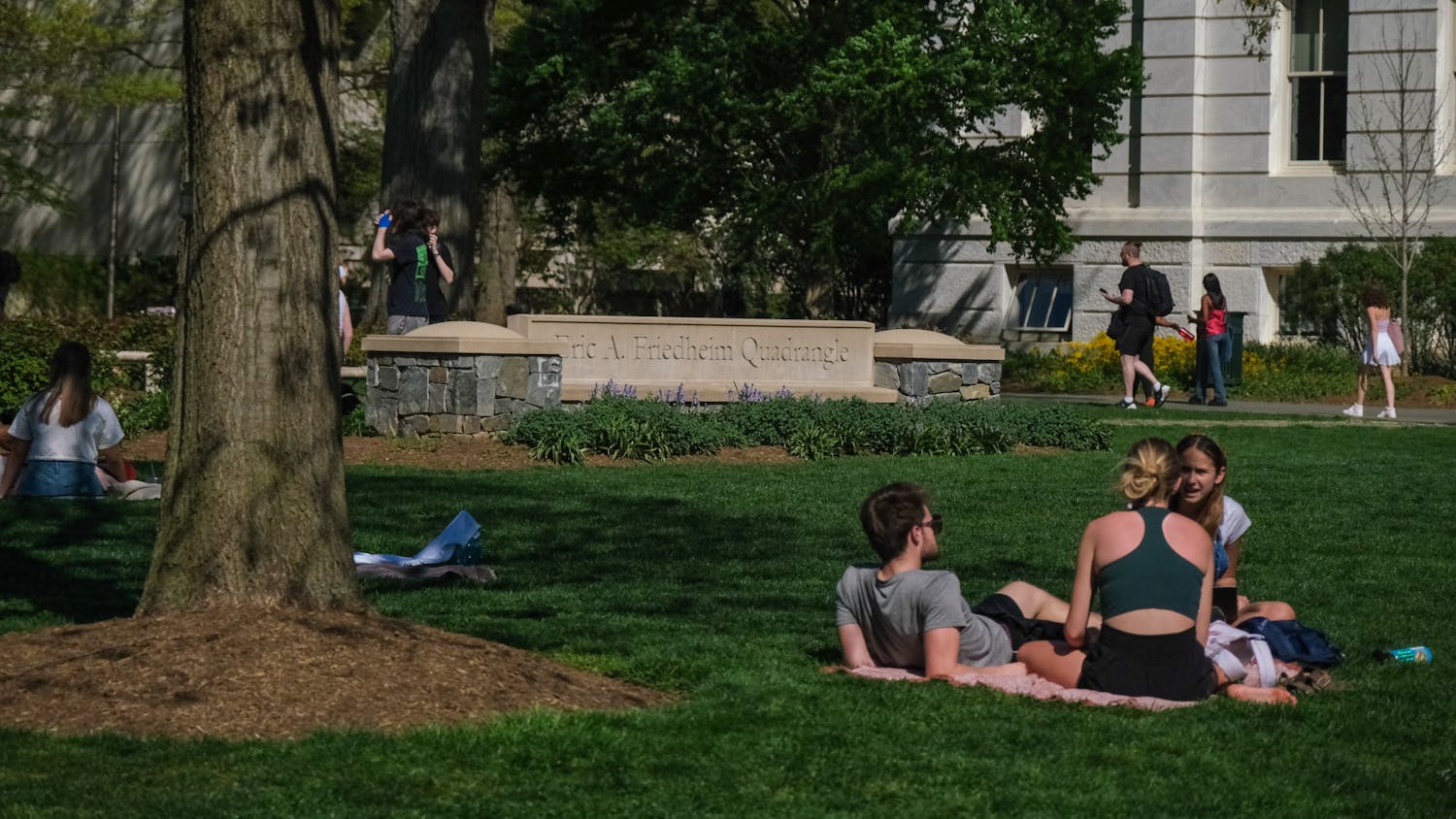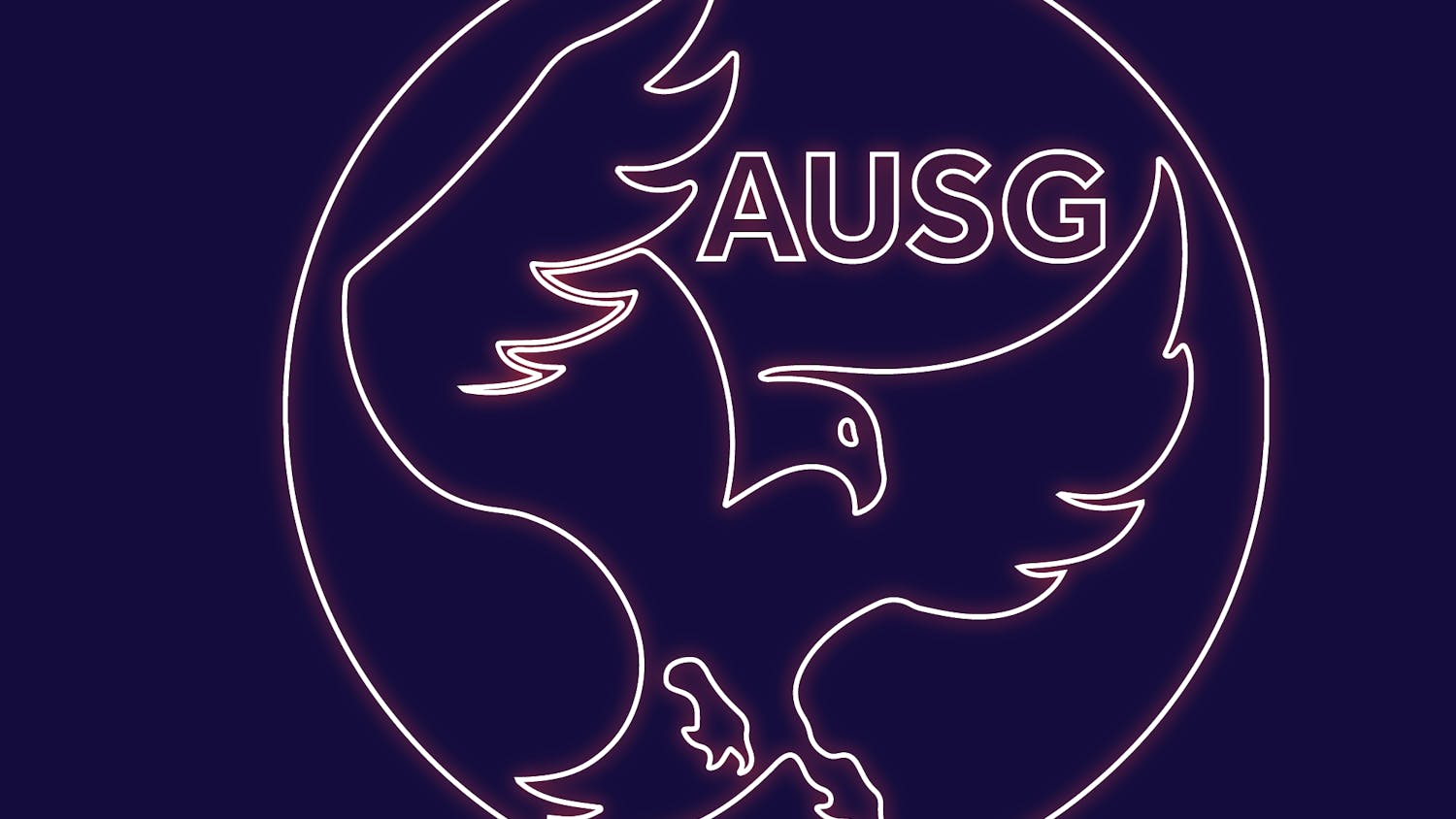AU Student Government President Nate Bronstein plans to gather support from students at AU and other D.C. universities to get the word out about a new D.C. noise law’s effects before a student is arrested or fined for loud noise.
“I want everyone to know about this new rule and regulation,” Bronstein said. “I don’t want to see a student have to martyr our cause.”
It is now illegal to make “unreasonably loud noise” in D.C. between 10 p.m. and 7 a.m.
If the noise disturbs one or more people in their residences, the offender can face up to 90 days in jail or a $500 fine.
Several student groups, such as D.C. Students Speak, an organization that tries to connect students at different D.C. universities to help them work toward common goals in the community, have outspokenly opposed the new noise law.
Many say the law’s “unreasonably loud” condition is ambiguous and subjective and believe it could easily discriminate against students.
As SG president, Bronstein is member of the D.C. Student Alliance, which he calls a United Nations for D.C. university student government presidents.
The D.C. Student Alliance needs to ensure the law is enforced fairly across different demographics, said former SG President and D.C. Student Alliance Executive Director Andy MacCracken.
“Unfortunately, there is a perception that students are irresponsible,” he said in an e-mail. “So it’s likely that a group of college students would be more likely to be punished under the new law than a group of middle-aged people.”
MacCracken suggested a decibel limit to standardize the law and make it less subjective.
“We’ll be fighting for this cause and we’ll make sure our voice is heard on this,” Bronstein said. “In the meantime, be very careful outside after 10.”
Law should not affect on-campus residents
AU Public Safety Chief Michael McNair said the new law, which went into effect Feb. 1, is similar to previous D.C. noise regulations and just clarifies what Metropolitan Police Department officers are required to do.
The law won’t really affect students living on-campus, McNair said.
For off-campus students, if a noise is made between 10 p.m. and 7 a.m. and all other avenues of settling the issue have been exhausted, then an MPD officer could arrest and cite the offending students, McNair said.
“If a loud noise is bothering you and we come out and the person is aggressively being disorderly, then it’s an offense,” said MPD Officer Anthony McElwee at the Advisory Neighborhood Commission 3D’s Feb. 2 meeting.
Neighbors have often called AU with noise complaints, but they are not at levels that would require arrests, McNair said.
“If you’re not throwing a loud party, it’s not conceivable you would be making so much noise,” he said.
McNair said AU typically receives neighborhood complaints involving students noisily going to and from parties, throwing trash on neighbors’ lawns, taking neighborhood parking spots and making obscene gestures.
Only the noise students may make going to and from parties is related to the new noise ordinance.
Violations of the law, however, are also violations of AU’s Student Conduct Code, as Vice President of Campus Life Gail Hanson reminded students in a Feb. 7 e-mail memo.
Motivation for the new noise ordinances
Many, including McNair, consider the new regulations to be aimed more at Georgetown neighborhoods, where students leave local bars, hang out in the streets and return to their houses, which are sprinkled throughout the area.
Hanson believes AU students are “fairly well-behaved.”
About 7,800 graduate and undergraduate students live off campus, Hanson said. Most undergraduates live in the 20016 zip code and mostly in apartments on Massachusetts Avenue.
Of those off-campus students, she said there are only a few group houses that persistently prompt community complaints.
“Now with this D.C. regulation, the price that they might pay for continuing to disrupt their neighborhood has gone up considerably,” Hanson said.
AU sees fewer noise complaints this academic year
McNair said the University has seen fewer noise complaints this academic year since AU created a group of staff members to proactively reach out to neighbors and deal with possible noise complaints before they arise.
If the University sees a high number of AU students living in one house — generally members of fraternities, sororities and athletic teams — the University will reach out to the neighbors and ask the greek or athletic advisors to monitor student conduct in the house, Hanson said.
“Students have responded well to that kind of request,” McNair said.
landerson@theeagleonline.com




